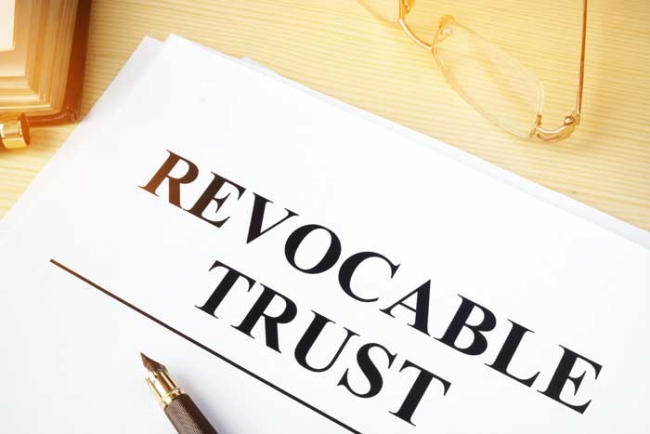BLOG
Trusts, Wills, Probate & 1031 Exchanges

Benefits of a Trust
There are many reasons why a person may choose to hold assets in a trust rather than in other holding capacities. One of the primary reasons is to bypass probate proceedings. When a person’s assets are held in a trust, the trust extends beyond the person’s death. Property held by the trust doesn’t go through probate.
Another benefit of trusts is that they can effectively double the amount of wealth that can be passed on to heirs, and they can be structured to address special needs, for instance the appointment of a trustee for heirs such as minors, handicapped persons, or those with alcohol , drug or gambling addictions.
Parties to a Trust
- Grantor or Settlor - The person who creates the trust, granting or settling assets into the trust.
- Trustee - The person responsible for administering the trust
- Beneficiary - The person who inherits funds from or otherwise benefit from the trust.
Revocable Trusts
Revocable trusts are the most common type of trust. As evidenced by the name, this type of trust may be revoked, modified or amended at any time by the grantor. Other names for such trusts include living trusts, self-declared trusts and inter vivos trusts.
With revocable trusts, the grantor, trustee and beneficiary are often one and the same person. These are “tax disregarded” entities and are taxed to the grantor using his or her social security number. The grantor of such a trust can meet the same taxpayer requirement of a 1031 exchange individually, as the trust or even as a single member LLC in which the grantor or the trust is the sole member.
Irrevocable Trusts
Irrevocable Trusts also work as their name implies. Once they are set up and funded, they cannot be changed in light of subsequent events. These trusts can be structured to minimize taxes and also can protect assets from creditor claims. An irrevocable trust has its own tax identification number and is not, for tax purposes, treated interchangeably with the grantor/settlor.
Trust under Will
A will can provide for a trust to come into being upon the death of the person leaving the will or testator. A testator may have been caring for a handicapped child and, upon his or her death, wishes to ensure that funds are on hand indefinitely to provide continuing care. Or, if beneficiaries of the will are be minors, a trust can set up to hold the assets for them until they are of a specified age. Once these types of trust come into being, they are irrevocable subject to the terms of the trust. Also, once the testator dies and the trust is established, a separate tax identification number is applied to the trust and used going forward.
Land Trusts
Land trusts can only hold real estate interests, and they will typically have a corporate trustee, such as a bank or trust company. Some states make broad use of land trusts while others do not recognize them due to technicalities of common law brought over from England when the various state laws were forming. Land trusts are like other revocable trusts; they can be revoked or amended while the primary beneficiary is living. Such a trust may name other persons as successor beneficiaries upon the death of the primary beneficiary.
Under Section 1031, there is a restriction against doing an exchange of a beneficial interest in an asset. However, the drafters of the code section had other types of investments in mind when they wrote this. In order to avoid confusion, the IRS released Revenue Ruling 92-105 stating that the owner of a beneficial interest in a land trust could participate in a 1031 exchange.
Probate
If a person dies without a trust, a court-supervised probate proceeding may be necessary to determine who inherits the assets from the deceased person. If the person dies with a will, it is referred to as a testate proceeding. If the person dies without a will, the proceeding is intestate, and the rules of heirship in their state of residence will dictate which heirs receive interests and at what percentage. If there is a will, an executor is named to carry out the distribution of the estate. If there is no will, that person will act as the administrator of the estate. As already mentioned, the existence of a trust will generally obviate the use of the will to transfer ownership of the assets left by the deceased. To the extent that any asset was unintentionally left out of the trust, the will sometimes “pours over” those assets into the trust upon death and the will which accompanies the trust is referred to as a pour-over will.
Death during Pendency of a 1031 Exchange
Normally in a 1031 exchange, the same person who sells a property is required to buy the new property, but sometimes the taxpayer sells relinquished property as part of a 1031 exchange and passes away before the exchange transaction is completed. Notwithstanding the old adage about death and taxes, the representative of the estate can, in this scenario, seek to complete the exchange and defer the taxes. In the event the exchange is not completed, the gains on the sale of the relinquished property would be paid as part of the deceased’s final tax return.

